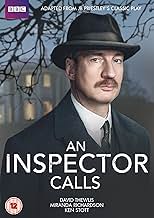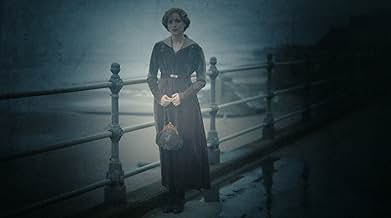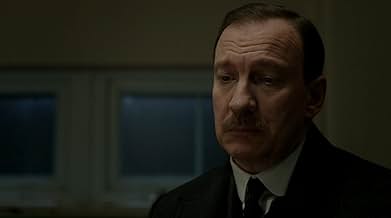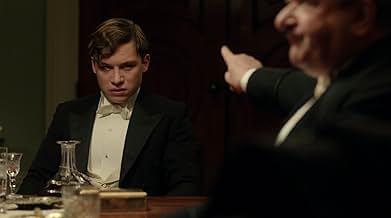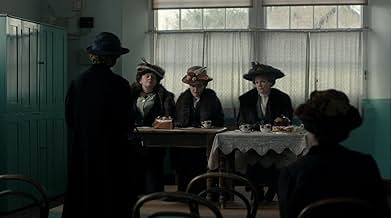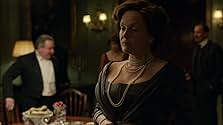A mysterious inspector investigates the wealthy Birling family and their dinner guest following the suicide of a young woman.A mysterious inspector investigates the wealthy Birling family and their dinner guest following the suicide of a young woman.A mysterious inspector investigates the wealthy Birling family and their dinner guest following the suicide of a young woman.
- Director
- Writers
- Stars
- Awards
- 2 wins & 5 nominations total
- Gate Keeper
- (uncredited)
- Posh Lady
- (uncredited)
- Millward's Shop Customer
- (uncredited)
- Young Eva
- (uncredited)
- …
- Factory Worker
- (uncredited)
- …
- seaside Photographer
- (uncredited)
- Factory Worker
- (uncredited)
- Director
- Writers
- All cast & crew
- Production, box office & more at IMDbPro
Featured reviews
I must admit I had my doubts beforehand about this, I tend to think sometimes if it ain't broke don't fix it, I love both the 1954 and 1982 versions respectively. This though had me utterly engrossed, it was an outstanding version. It looked superb, the factory scenes looked incredibly authentic, as did the scenes in the house.
I liked how it began too, not straight into the dinner setting, we were given a little bit of background. From then on it kept to the story beautifully, it must have been tempting to have tweaked it in some way. Definitely the most serious version of it, no softer humorous side, this was pretty bleak. I couldn't pick a standout performance as I thought every cast member was wonderful.
Truly captivating, 10/10
To be honest, right at the beginning when the characters were presenting themselves at the dinner table I found most of their portrayals quite bland and out of character in a sense- especially Eric and Sheila. I found them lacking that strength and uniqueness that had made me strive for them while reading the play, but then again it's true that at the beginning their personalities were much more superficial and that were mostly developed as the play progressed- something which was shown naturally in the film.
Nevertheless, as soon as the plot starting moving the skepticism faded away and I was left awestruck by the actors' outstanding performances; Mr and Mrs Birling were just how I pictured them throughout the story; Gerald was given much more emotional depth than what I had imagined and Eric even though it wasn't how I initially thought of him made me comprehend a completely different interpretation of his character. I am not quite sure of Sheila yet, but I do have to admit that Chloe Pirrie reflected her major character development, but I imagined Sheila as a more immature and naive girl in the beginning. Let's not forget about Sophie Rundell's breathtaking job as Eva: taking only brief descriptions from a dead girl and turning that into a round character with a profound, political and representative meaning behind it.
Even if the characters' portrayals is essential to the film, what really sticks to the audience are the audiovisuals, and I can assure you this film excelled in that job. The shots were beautiful and gave the story a deeper meaning for me as a viewer and indeed hinted many subtle messages that otherwise wouldn't have made much sense. Above all, what most impressed me was the score; from the beginning until the very end the score was used skilfully to match the characters' emotions in certain scenes, but the feeling of strings and a piano matched the main themes of the play, and probably may be the main reason for my passionate liking of this film.
Whatever it might be, you're not going to expect *this*. Make absolutely sure to avoid spoilers! All you must know is that it isn't a "detective" story. It's a whodunit of sorts but who did it isn't the point (while being the only point - it'll make sense after)
An inspector calls onto a wealthy family at dinner time in 1910 to impart some seemingly unrelated piece of bad news. Ensues a flawless story, stunning cinematography, perfect period atmosphere, and absolutely top drawer acting. English television at its very best. 10/10 and I'm ever so glad I happened onto this tonight.
I can't compare (as yet) with the original version, but the 2015 version is very well, with good period atmosphere.
"An inspector calls" is based on the play of the same name by J.B. Priestley (1945). Earlier Priestleys novel "Benighted" (1927) had been adapted by James Whale into the movie "The old dark house" (1932). Both novel and play are comments on the English class society.
The story of "An inspector calls" is about the suicide of a working class girl. During an interrogation by the mysterious inspector Goole (being a group interrogation, this gives the play / film a very Agatha Christie like flavor) it turns out that all of the members of a wealthy family have contributed in one way or another to this suicide.
The story has aged very well. I would like to call attention to a couple of things in particular.
In the beginning of the film the father of the wealthy famlily says "It is not important where you start in life, it is important where you finish". The old American dream phrased differently. His own family is the living proof of the fact that it does matter where you start in life.
Inspector Goole is very mysterious. He seems to be omniscient, interrogating to force a confession and not to learn more himself. He makes a very moralistic farewell speech, in which he says there are thousands of people like the poor working class girl in the story. It is obvious that he is not an ordinary police inspector. It is for the spectator to decide who or what he really is.
The members of the family ar all guilty of the suicide of the girl. There guilt is however ethical and not legal. It is disenchanting to see how quickly some members of the family recuperate when they become aware of this distinction.
Did you know
- TriviaThe original play was produced twice on Broadway over a 50-year period of time. The second production earned multiple awards, including Best Revival of a play, and best featured actress for Jane Adams. The revival production also earned awards for creative set design, which featured all adult actors moving around on an oversized doll house sized set, and the actors were unable to actually enter or move around within the rooms of the house.
- GoofsGerald leaves the room after Sheila has given him back her engagement ring, but the next time she appears, she still has the engagement ring on her finger.
- Quotes
The Inspector: There are millions and millions of Eva Smiths and John Smiths still left with us, with their lives, their hopes and fears, their suffering and chance of happiness, all intertwined with our lives in what we think and say and do. We don't live alone upon this earth. We are members of one body. We are responsible for each other. And if mankind will not learn that lesson, then the time will, soon, when he will be taught it in fire and blood and anguish.
- ConnectionsRemake of Un inspecteur vous demande (1954)
Details
- Release date
- Country of origin
- Official sites
- Language
- Also known as
- An Inspector Calls
- Filming locations
- Production companies
- See more company credits at IMDbPro
Contribute to this page


